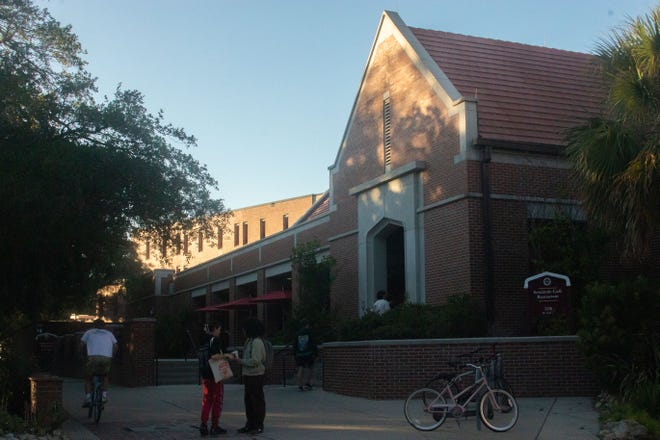
When pulling an all-nighter for a major exam or returning home from a night out with friends, most people would not turn to an apple or broccoli for a late-night snack. Life, and college, in particular, is all about balance. However, I believe there is a grave need for healthy food options to be made more accessible and encouraged on campus.
There are many reasons that healthy eating is not entirely mainstream in college. Upon entering, many FSU students are used to their parents cooking for them and do not have much experience with the culinary arts. A large percentage of students live in dorms, which makes cooking challenging.
College elicits anxiety, which may manifest as stress-eating. Stress releases cortisol, thus increasing one’s appetite, per the Cleveland Clinic.
FSU undoubtedly possesses a prevalent party scene. This is accompanied by a multitude of locations near campus offering junk food to quench late-night cravings. Students may not feel their very best the morning after exploring the nightlife. This usually results in an adventure to the McDonald’s on Tennessee Street.
Even if college students desire healthy eating, this can be very difficult due to higher costs and inconvenience. I certainly understand how healthy eating sermons seem cliche, and I was NOT a fan when Obama’s Healthy, Hunger-Free Kids Act of 2010 decided that school lunches should lose flavor.
It is not easy, but students need to prioritize nutritious food intake.
“A healthier diet makes me more motivated for school work and other responsibilities throughout the day” Josie Bell, a sophomore studying chemical science, said. “It is easy for college students to eat whatever is cheapest or most convenient, but we need options that are healthy and sustainable.”
According to the Centers for Disease Control and Prevention (CDC), healthy eating contributes to increased longevity, boosted immunity, muscle support, bone strength and weight maintenance. It also helps with digestion while lowering the risk of heart disease, type 2 diabetes and cancer.
The benefits extend beyond physical barriers, and the food someone digests correlates to their emotions. Roughly 95% of serotonin spawns from the gastrointestinal tract, which is abundantly lined with neurons, per Harvard Medical School.
Harvard continues that specific diets align with a 25-35% lower risk of depression. Mediterranean and Japanese cuisine exemplify these traits due to the high involvement of vegetables, fruits, unprocessed grains, fish and seafood. Lean meats, dairy, processed foods, refined foods and sugars are limited or omitted.
The CDC also reports that students who routinely eat breakfast, consume 100% fruit juice one or more times per day, eat vegetables one or more times per day and avoid sodas score higher grades on average. A 2014 study by Preventative Medicine shares that 95% of college students do not consume enough fruits or vegetables.
“A healthier breakfast makes me feel better throughout the day,” Ava Virtuoso, a sophomore studying biology, said. She thinks FSU should “target freshmen by implementing healthier options in the dining hall for healthier eating habits throughout college.”
Fortunately, there are healthy options available. Bento Sushi at 1851 is a possible location to purchase Japanese food, and other places have items that fit this description. Shake Smart, located inside the Leach Recreation Center, has a variety of protein options. The location encourages students to exercise while the products support post-workout recovery.
Fruit stands and salad bars are also available in Seminole and Suwanee Dining Halls. Students need to utilize these resources to better their overall well-being. FSU should either have more options available at a lower cost or avoid using abundant preservatives in the food served.
Parker Maxwell, a junior business management major, thinks FSU does a good job of supplying healthy options.
“Panera has healthy food, and I like going there after my classes. I really like the chicken Caesar salad wrap,” Maxwell said.
I am not making the case that students need to only eat nutrient-dense foods and do away with activities that encourage eating. Fueling your body is vital, and this includes eating enough food to support bodily functions. However, making daily choices to incorporate whole foods is exceptionally beneficial for physical, mental and academic health. FSU should facilitate this by refining what is available for students.
